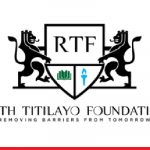The Adolescent Girls Initiative for Learning and Empowerment (AGILE) Project has commenced the first phase of its Conditional Cash Transfer (CCT) program in Zamfara State, Nigeria. The initiative, which kicks off this July, aims to tackle low school enrollment among adolescent girls by easing the financial pressure on families.
Speaking to journalists in Gusau, the state capital, Hajiya Umma Salma Abubakar Usman, AGILE’s Conditional Cash Transfer Officer, confirmed that preparations are in their final stages. “We are currently producing ATM cards for the validated students, and payments will begin this month,” she said. “Some students have already received text messages containing their account numbers.”
The CCT targets girls in Primary 6 and JSS 3, key transition points where school-related expenses often hinder further education. The intervention offers cash payments ranging from ₦15,000 to ₦25,000, disbursed in batches, to support items like uniforms, bags, shoes, and fees for the next academic level. To remain eligible, students must maintain at least 70% attendance.
“This initiative is especially for families who cannot afford to keep their daughters in school,” Hajiya Umma Salma said. “In Zamfara, insecurity has left many women widowed and financially strained. If a parent can’t afford basic food items like millet or maize, how would they think of paying school expenses?”
She emphasized that AGILE does not enroll students but works through schools to identify qualified girls. “We do not collect any fees for registration,” she added. The enrollment process is rigorous; students are verified against school registers and must appear with their mothers or close relatives. Their names, photos, Bank Verification Numbers (BVNs), and phone numbers are captured before final approval.
The AGILE project, implemented across several Nigerian states with potential lessons for other parts of Africa, aims to boost girls’ education through a comprehensive support framework. According to Bashir Kabiru Ahmad, AGILE’s Communications Officer, the initiative also includes school renovations, water and sanitation facilities, computer literacy, and vocational training.
“Sometimes, even the lack of water alone is enough to stop a girl from going to school,” Bashir noted. “That’s why the AGILE Project goes beyond just paying money; it’s about creating a supportive environment for learning.”
Under the leadership of Hajiya Sa’adatu Abdu Gusau, the project is gaining wider acceptance. “More people now understand what AGILE stands for, and they are helping to spread the word,” Bashir said. He also urged communities to discourage domestic chores and petty trading that often pull girls out of school.
While the current rollout focuses on Zamfara, the AGILE model presents a scalable framework for other African regions facing similar challenges. By investing directly in girls’ education, the project addresses long-term economic and social development goals, offering a pathway to empowerment for thousands of adolescent girls across Nigeria,and potentially beyond.










